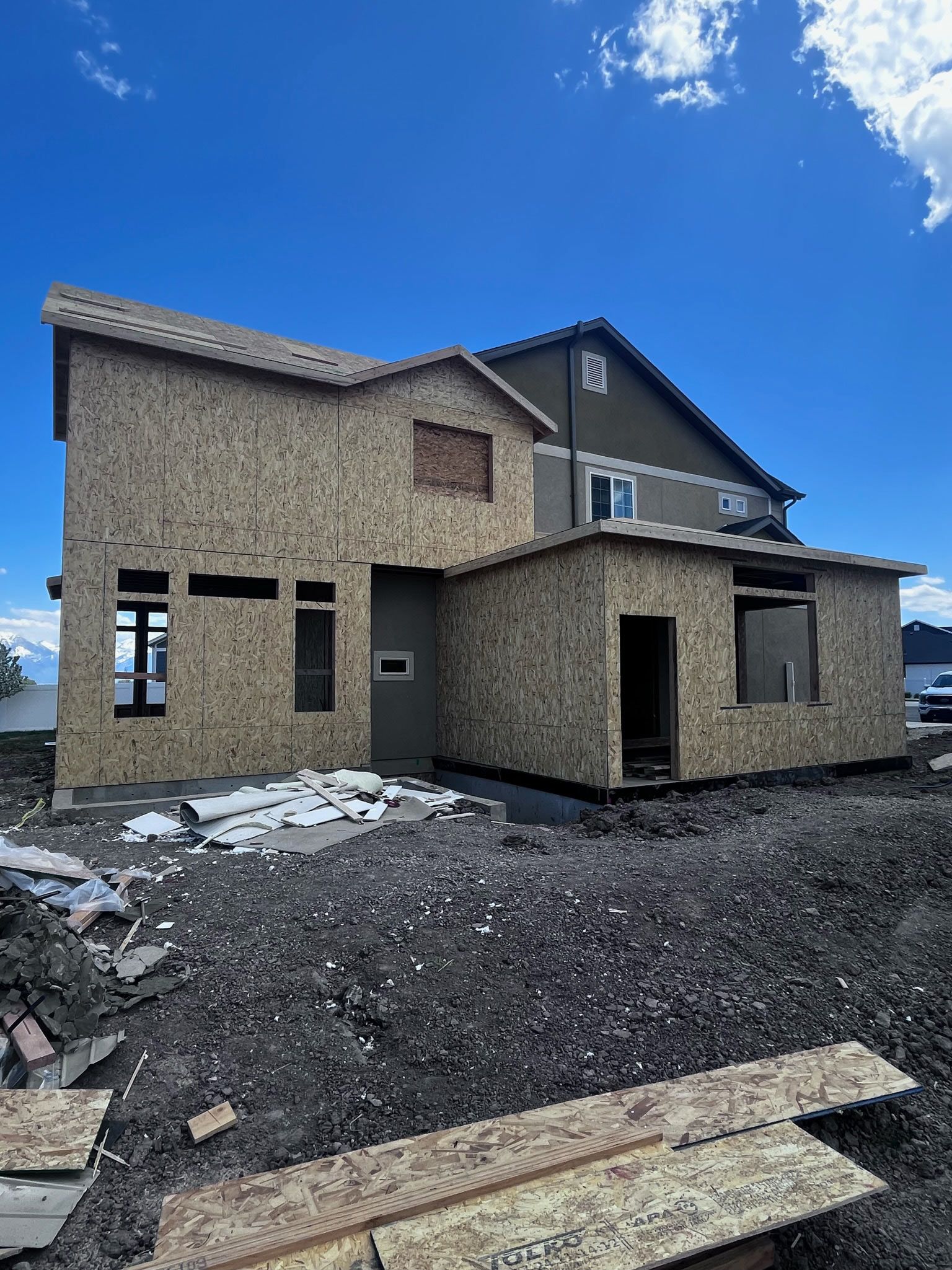Basement Finishing vs. Basement Remodeling: What’s the Difference?
Introduction
If you're like many homeowners in Salt Lake County, your basement might be sitting unfinished or underutilized. It’s a valuable space with untapped potential—whether you're thinking about creating a guest suite, home theater, office, or cozy family room.
But here’s the big question: should you finish your basement or go for a full remodel?
Although the terms are often used interchangeably, basement finishing and basement remodeling are two very different approaches. This guide breaks down their differences, costs, timelines, and benefits so you can confidently decide what’s best for your home and goals.
The Core Difference Between Finishing and Remodeling
At a glance, both options aim to make your basement more livable. But they differ significantly in scope, complexity, and cost.
What is Basement Finishing?
Basement finishing involves transforming a bare or partially finished basement into a comfortable, usable space—without changing the original structure or layout. Think of it as adding the essentials:
- Framing and drywall
- Insulation and flooring
- Basic lighting and electrical
- Ceiling finishes and paint
No plumbing reroutes. No wall demolitions. No major structural changes. The goal is to turn an empty shell into a clean, functional space for living, working, or relaxing.
What is Basement Remodeling?
Remodeling goes a step further. It typically involves reconfiguring the layout, adding new rooms, and often includes plumbing and HVAC upgrades. It may also require architectural plans and permits.
A remodeled basement could include:
- Adding a bathroom or kitchenette
- Rebuilding or moving walls
- Creating separate living quarters or rental units
- Upgrading the electrical and HVAC systems
- Waterproofing or structural improvements
Remodeling is more intensive and takes longer—but it opens the door to a truly custom lower level that fits your lifestyle.
How to Decide Which is Right for You
To help make your decision easier, consider the following factors:
1. Your Goals for the Space
Start by asking yourself how you plan to use the space.
- Finishing is ideal if you just want an additional family room, play area, gym, or home office without major changes.
- Remodeling is a better fit if you're looking to add bedrooms, a bathroom, or a second living suite with amenities.
2. Budget Considerations
Generally, finishing a basement is more affordable than remodeling. Here's a rough breakdown:
- Finishing Cost Range: $7 to $23 per square foot
- Remodeling Cost Range: $30 to $70+ per square foot
That means a basic finish could cost $10,000–$25,000, while a full remodel could exceed $40,000–$75,000 depending on your plans.
If you're in Salt Lake County and want to stay within a certain budget, finishing offers more value per dollar—especially if you're not changing the structure.
3. Timeline & Project Scope
Basement finishing can often be completed in a few weeks to two months. Remodeling, on the other hand, can take several months depending on the size, scope, and permitting process.
Consider your timeline, family needs, and whether you're ready for a longer renovation project with more moving parts.
4. Local Code & Permit Requirements
In Salt Lake County, finishing a basement typically requires fewer permits—especially if you're not altering plumbing or structural components.
Remodeling often triggers a need for:
- Plumbing permits
- Electrical upgrades
- Egress window installation (for bedrooms)
- Fire safety or ventilation upgrades
Make sure to check local codes or consult a professional like Foundation Finishes who handles all code compliance as part of their process.
5. Long-Term Resale Value
Both options can increase your home’s value. Finishing your basement adds usable square footage, while remodeling adds custom features that may appeal more to buyers.
Here's a quick comparison:
- Finishing ROI: ~70–80% of the investment recouped
- Remodeling ROI: Often higher, especially with a bathroom or rental-ready suite
If you're planning to sell in a few years or rent out your basement, remodeling may offer a better return on investment.
Summary Comparison Table
To make your decision easier, here’s a side-by-side comparison of the two:
Summary Table: What to Look for in a Remodeling Contractor
| Feature | Basement Finishing | Basement Remodeling |
|---|---|---|
| Layout Changes | No | Yes (new walls/rooms) |
| Plumbing/Electrical | Minimal upgrades | Full system integration |
| Permits Required | Fewer | More extensive (esp. plumbing & structure) |
| Cost Range | $7–23 per sq ft | $30–70+ per sq ft |
| Timeline | 2–8 weeks | 2–4+ months |
| Ideal Use | Home office, playroom, family room | Guest suite, bathroom, rental unit |
| ROI Potential | 70–80% | Higher with added amenities |
Conclusion: Which Should You Choose?
If you're looking for a simple and cost-effective way to make use of your basement, finishing is a great option. It’s faster, more affordable, and perfect for expanding your living space without structural changes.
If your vision includes a new bedroom, in-law suite, full bathroom, or income-generating unit, then a full basement remodel is the way to go.
At Foundation Finishes, we help homeowners throughout Salt Lake County navigate both options with clarity and confidence. Whether you want to finish a bare basement or fully redesign it from the ground up, we’re here to bring your vision to life—with quality craftsmanship and clear communication every step of the way.
Ready to discuss your project? Contact us today for a quote and consultation.


